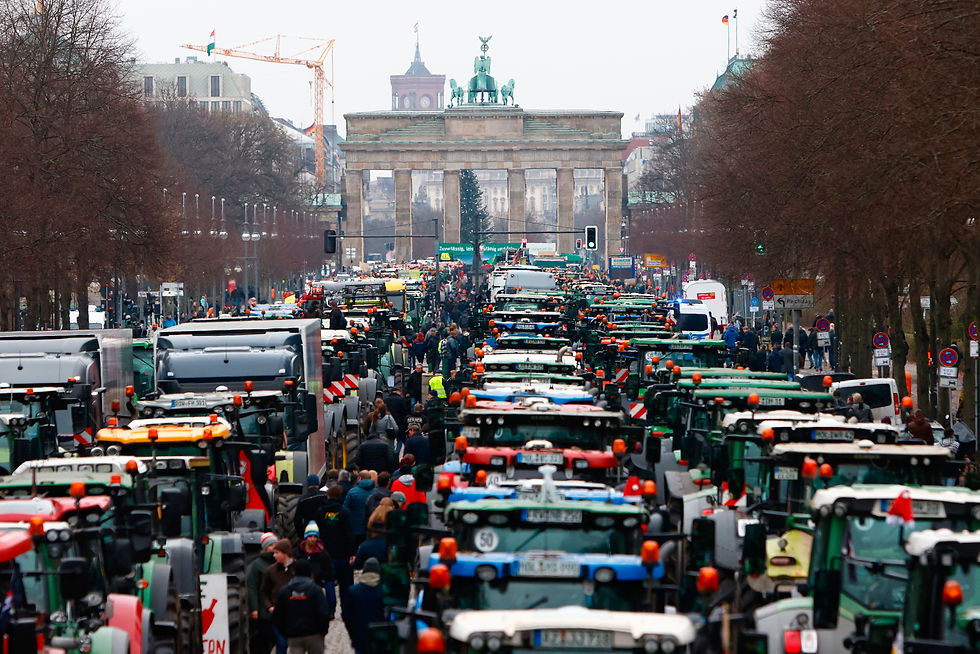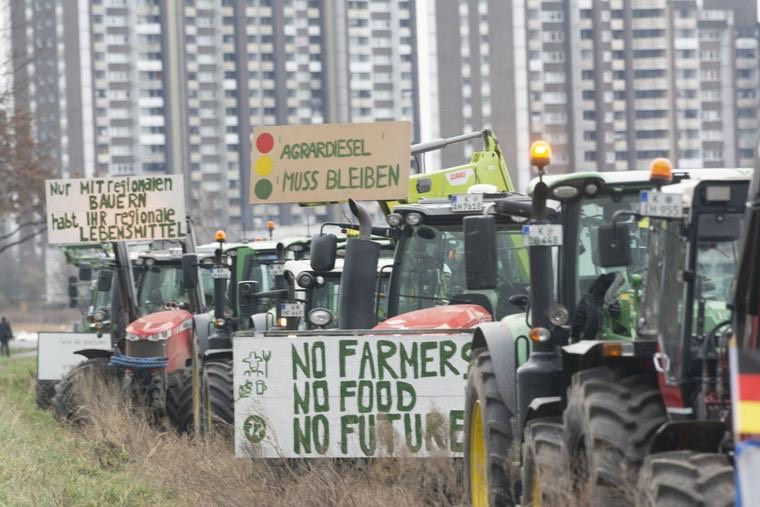Fields of Fury: The European Farmer Uprising of 2023-2024
- 21craynewschannel
- Jan 27, 2024
- 4 min read

The recent wave of farmer protests across Europe, including in countries like the Netherlands, Germany, France, Poland, Romania, Lithuania, and Scotland, is a complex and multifaceted issue. These protests are primarily driven by specific national concerns, although there are common themes across the countries.
In Germany, the protests have been largely about government plans to cut agricultural subsidies, including diesel subsidies. The German government initially planned to abolish vehicle tax benefits for agricultural businesses and gradually phase out subsidies for agricultural diesel by 2026. This decision led to thousands of farmers blocking major cities in protest.
Spanish farmers, on the other hand, have been protesting against water-saving measures, while French demonstrators have raised issues regarding irrigation and fuel expenses, as well as EU trade policies. The French farmers’ union has been successful in securing a decrease in two taxes for the coming year.
In the Netherlands, the protests have centered around the government's efforts to make farming more ecologically stable, including plans to reduce harmful nitrogen emissions by half by 2030. This has involved proposals to shutter thousands of farms, which has been met with significant resistance from the farming community.
Farmers across Europe have expressed that they are feeling the economic squeeze, exacerbated by factors like the Russian invasion of Ukraine, which has led to soaring fertilizer and fuel prices. Agricultural yields have not been able to keep up with these growing costs, placing additional strain on farmers.
Environmental reforms are a significant point of contention. While the agricultural sector is not opposed to environmental reform per se, there is a need for more support to handle the associated costs. These costs, according to some views, should also be shared by consumers.

Political concerns are also evident, with some protests attracting support from far-right groups, although farming associations have tried to distance themselves from these elements.
The impact of these protests is significant, affecting not just the agricultural sector but also broader political and environmental policies across the EU. With EU elections approaching, there is concern about how these protests might influence the political landscape, particularly regarding the EU's ambitious climate goals, such as reaching "net-zero" emissions by 2050 and reducing chemical pesticide use by 50% by 2030.
These protests highlight the challenges of balancing environmental goals with the economic and social realities of the farming community. The situation remains dynamic, with ongoing negotiations and discussions between governments and farming groups.
The recent surge of farmer protests across various European countries, including the Netherlands, Germany, France, Poland, Romania, Lithuania, and Scotland, stems from a confluence of economic, environmental, and policy-related factors. Here's an integrated overview of the key issues and dynamics:
Economic Pressures

Rising Costs: Farmers are grappling with increased costs for essential inputs like fertilizer and fuel, partly due to the geopolitical impacts of Russia's invasion of Ukraine. These rising costs have not been offset by corresponding increases in agricultural yields or profits.
Government Subsidies and Taxes: In countries like Germany and France, specific government policies regarding agricultural subsidies, diesel subsidies, and taxes have been focal points of discontent. For example, German farmers protested government plans to cut agricultural subsidies, including those for diesel, while French farmers have been successful in securing tax reductions for the upcoming year.
Environmental Regulations and Reforms
Nitrogen Emissions Reduction in the Netherlands: A pivotal issue in the Netherlands is the government's plan to reduce harmful nitrogen emissions by half by 2030, which includes proposals to close down numerous farms. This has caused significant unrest among Dutch farmers, who see these measures as existential threats to their livelihoods.
EU-Wide Environmental Goals: The EU's environmental objectives, such as the goal of achieving "net-zero" emissions by 2050 and reducing chemical pesticide usage by 50% by 2030, are viewed with apprehension by the agricultural sector. While not opposed to environmental reforms in principle, farmers seek more support and shared responsibility in bearing the costs of these changes.
Political Context and Response
Influence of Far-Right Groups: In Germany, there have been concerns about far-right groups attempting to co-opt the farmers' protests, although agricultural associations have tried to distance themselves from these elements.
Impact on EU Politics: These widespread protests are occurring in a key electoral year for the EU, raising concerns about their potential influence on upcoming elections and the political support for the EU's ambitious climate and environmental goals.
Broad Impact and Ongoing Dynamics
The protests reflect deep-seated challenges in balancing environmental goals with the economic and social realities faced by the farming community. They have significant implications, not just for the agricultural sector but also for broader EU policies and political stability.
The situation remains dynamic, with ongoing discussions and negotiations between governments and farming groups to address these complex issues.
In summary, these farmer protests in Europe are a manifestation of the tensions between economic pressures, environmental reforms, and political dynamics. They highlight the need for a balanced approach that considers the diverse needs and challenges of the agricultural sector while pursuing broader environmental and policy objectives. My Main Concern is to bring awareness to the world and connect everyone, love to All.

.png)



Comments